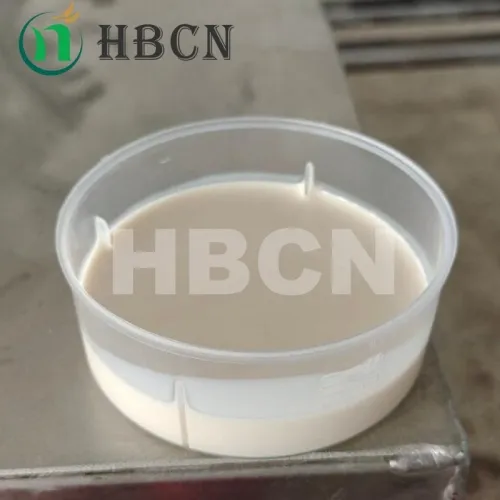
Dez . 09, 2024 10:31 De volta à lista
Unlocking the Power of Agrochemicals
In today’s fast-paced agricultural world, finding the right tools to enhance crop production while reducing environmental impact is more important than ever. Agrochemicals, including herbicides and fertilizers, have revolutionized farming practices, making it easier to meet the demands of an ever-growing population. This article takes a closer look at the role of agrochemicals, the different types of selective herbicides, and how agrochemical-based agriculture is transforming the industry. We’ll also explore the growing market for generic agrochemicals and their impact on farming practices.

Understanding Agrochemicals and Their Role in Modern Agriculture
Agrochemicals are chemicals used in agriculture to manage pests, diseases, and weeds, as well as to promote plant growth. These substances, which include herbicides, pesticides, and fertilizers, have become indispensable in today’s agricultural landscape. The primary goal of agrochemicals is to protect crops from harmful elements and improve yield, ensuring that farmers can feed the global population efficiently.
By using the right agrochemicals, farmers can optimize their production processes, prevent crop loss, and ensure sustainable farming. However, it's essential to use these products responsibly to minimize environmental impact. With the advancement of technology, agrochemicals have become safer and more effective, allowing farmers to use them with confidence.
Exploring Types of Selective Herbicides for Optimal Crop Protection
When it comes to managing weeds, types of selective herbicides are among the most crucial tools for farmers. These herbicides are designed to target specific weed species while leaving crops unharmed. This selective action helps protect valuable crops from competition without causing damage.
There are many types of selective herbicides, each formulated to work on particular weeds, such as broadleaf or grassy weeds. Some common categories include:
- Broadleaf herbicides: These are used to target broadleaf weeds while leaving grasses largely unaffected.
- Grassy weed herbicides: Designed specifically for the control of grassy weeds in crops like corn and wheat.
- Pre-emergence herbicides: These work by preventing weed seeds from germinating, ensuring the crops have a better chance of growing.
Farmers can choose the appropriate herbicide depending on the specific needs of their crops, ensuring the effective management of weeds without harming the surrounding environment.
The Evolution of Agrochemical-Based Agriculture
Agrochemical-based agriculture has been at the forefront of increasing crop production and ensuring food security worldwide. With the rise of industrial farming, the use of fertilizers and pesticides has become an essential part of modern agricultural practices. These chemicals allow for higher yields, better quality produce, and more efficient land use.
In addition to enhancing productivity, agrochemicals have played a role in reducing labor costs and improving the profitability of farming. As farming has become more specialized, the demand for more effective agrochemicals has grown, leading to innovations in the industry.
As we move forward, agrochemical-based agriculture is becoming more integrated with other sustainable farming practices, such as precision farming and integrated pest management, where agrochemicals are used in conjunction with technology to optimize results and reduce environmental impact.
The Rise of Generic Agrochemicals and Their Impact
The demand for generic agrochemicals is steadily increasing as farmers seek affordable alternatives to branded products. Generic agrochemicals are typically cheaper than their branded counterparts but are often made with the same active ingredients and offer similar levels of efficacy. This affordability is a major selling point for farmers, especially those working in regions where cost-effectiveness is crucial.
In addition to price, generic agrochemicals are gaining popularity because of their versatility and accessibility. Many farmers who may not have had access to branded chemicals due to cost constraints are now able to benefit from the same technologies, which ultimately boosts productivity and yields.
However, it’s important to ensure that the use of generic agrochemicals meets regulatory standards and is used responsibly. When purchased from reputable sources, generic agrochemicals can be a sustainable and practical solution for farmers.
The Future of Agrochemicals in Agriculture
Looking ahead, the future of agrochemicals seems poised for innovation. As agriculture continues to evolve, the focus will likely shift towards more environmentally friendly and sustainable chemical solutions. Advances in biotechnology and the development of eco-friendly chemicals are likely to play a pivotal role in shaping the industry.
Moreover, farmers will continue to benefit from the development of more specialized types of selective herbicides, which can target specific pests and weeds more efficiently, reducing the need for widespread pesticide use. Agrochemical companies are also investing in research to create safer, more effective chemicals that provide the same or better results with less environmental impact.
In conclusion, agrochemicals remain a vital part of modern agriculture, offering solutions that support global food production. As we continue to innovate in this field, the industry will undoubtedly see new opportunities for both farmers and consumers alike, ensuring that the future of farming is both productive and sustainable.
-
Tembotrione Mode of Action in Weed Control
NotíciasJul.21,2025
-
Safety Guidelines for Handling Atrazine in Farming
NotíciasJul.21,2025
-
Mesotrione Residue Management in Crops
NotíciasJul.21,2025
-
How Topramezone Controls Resistant Weed Species
NotíciasJul.21,2025
-
How to Properly Handle Glufosinate Ammonium
NotíciasJul.21,2025
-
Best Practices for Applying 2 4d Herbicide
NotíciasJul.21,2025
